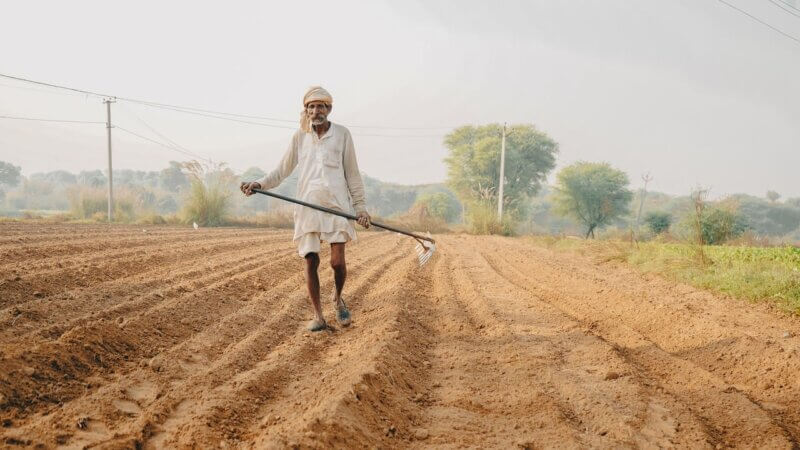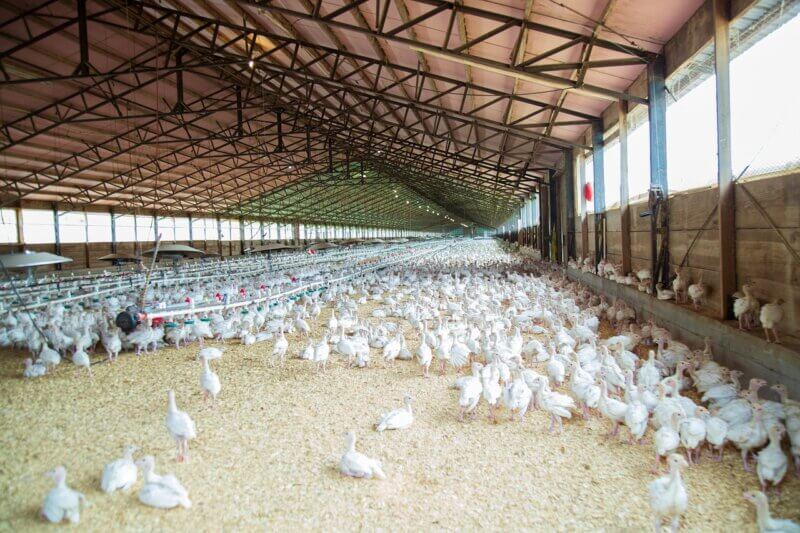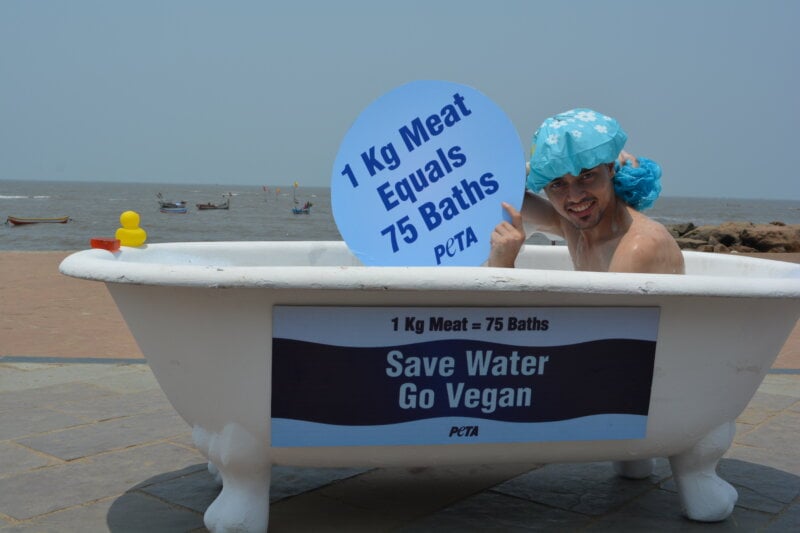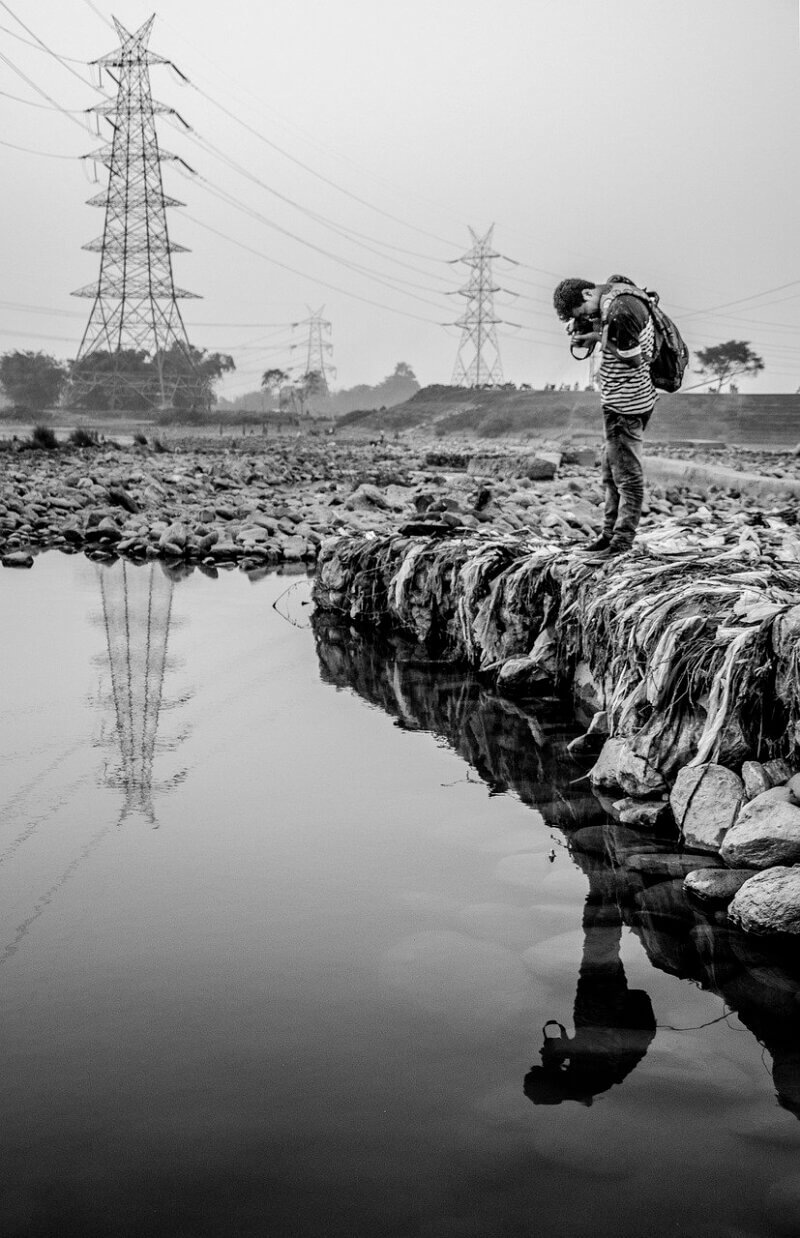5 Reasons Why Meat’s Not Green
This World Environment Day (5 June), please encourage your friends and relatives to go vegan to help alleviate world hunger and save the environment.
Here are just five reasons why it makes sense to opt for veggie burgers instead of egg burgers and chickpeas rather than chicken.
- Meat Production Wastes Land and Grain
The meat, egg, and dairy industries use a third of the world’s cropland, which could be used to feed hungry humans. It’d be more economical and efficient for humans to eat these foods directly, which would also save the vast amounts of water that are expended on breeding and raising animals for food.
A report from the World Wildlife Fund states that making a higher proportion of our diets plant-based could be instrumental in limiting future expansion of land use and encourage ecosystem restoration.
- Eating Meat Contributes to the Climate Catastrophe
According to a recent study published in the journal Nature Food, at least 57% of global greenhouse gas emissions are caused by animal agriculture. Another study conducted by the Indian Institute of Technology Delhi and Deenbandhu Chhotu Ram University of Science and Technology, Murthal, has shown that methane produced by animals raised for food in India may significantly raise global temperatures over the coming decades.
By some estimates, animal agriculture is responsible for roughly the same amount of greenhouse gas emissions as transportation worldwide. A recent study assessing how vulnerable the developed areas of 26,000 locales are to the effects of the climate catastrophe found that nine Indian states ranked among the 50 most vulnerable. India is already experiencing the damaging effects of climate change in the form of unprecedent heatwaves, cyclones, torrential rains, and floods; a drop in crop production; a resurgence of several vector and waterborne diseases; and an increased risk to food, energy, and water resources. The Reserve Bank of India’s Department of Economic and Policy Research has warned that in the absence of policies that adequately safeguard against the effects of the climate catastrophe, India could see a nearly 3% decrease in its gross domestic product (GDP), nearly half of the population could experience worsened living standards, and the country could lose up to 10% of its GDP annually by the next century. Climate change may also lead to wars over limited natural resources.
- The Meat Industry Drains Our Water Supply
The meat, egg, and dairy industries place a serious strain on the world’s water supply – by watering the crops grown to feed farmed animals, providing billions of animals with drinking water each year, and cleaning the filth from factory farms, trucks, and slaughterhouses.
According to a recent peer-reviewed study published in the journal Nature Food, adopting vegan eating cuts an individual’s water footprint by 54%. According to the Water Footprint Network, it takes 322 litres of water to produce 1 kilogram of vegetables. In contrast, the production of 1 kilogram of milk requires 1020 litres, 1 kilogram of eggs requires 3265 litres, 1 kilogram of poultry requires 4325 litres, 1 kilogram of pork requires 5988 litres, 1 kilogram of mutton requires 8763 litres, and 1 kilogram of beef requires a staggering 15,415 litres.
- Factory Farm Runoff Is Ruining Our Waterways
According to the latest estimates, cows, chickens, pigs, and other animals raised for food produce 3.9 trillion kilograms of excrement per year – that’s 7 million kilograms every minute. According to the United Nations, “The livestock sector is … the largest source of water pollution, contributing to eutrophication, ‘dead’ zones in coastal areas and degradation of coral reefs.”
While the animal agriculture industry should be held accountable for polluting our rivers, we don’t have to wait for it to change and should all share responsibility for cleaning up the planet. Everyone can help do this simply by eating vegan and ditching animal-derived foods.
- The Meat Industry Is Destroying Wildlife
The devastation of vulnerable environments, such as the Amazon rainforest, in order to grow feed for intensively farmed animals is a major contributor to biodiversity loss around the world.
A report from the World Wildlife Fund revealed that 60% of global biodiversity loss is attributable to meat consumption, and this is only projected to worsen.
Another study concluded that the consumption of meat may be the single biggest threat to much of the world’s plant and animal life as a result of land clearing to rear animals for food and grow the crops to feed them, especially as meat producers expand their operations into places with the highest percentage of unique species – like the Amazon, where jaguars are near threatened.
By eating sustainable vegan foods, not only can we save wildlife and preserve biodiversity, we can also end the suffering of animals raised for food.
Please do your part to alleviate hunger, protect the environment, and end animal suffering by choosing tasty vegan foods, and urge others to do the same.
Order a FREE Vegan Starter Kit Today












